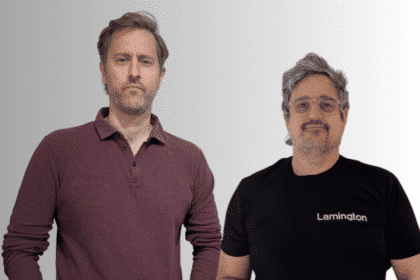Colin D Ellis (pictured below) is a culture change expert, an award-winning speaker and a best-selling author. His latest book Culture Fix: How to Create a Great Place to Work is out now. In this guest post, Ellis argues there’s lots to learn from those who’ve gone before when it comes to this whole digital transformation caper…
The whole world seems to be starting digital transformation projects at the moment. Yet, what most senior managers seem to forget that transformation of a business, also requires transformation of self.
In order to be able to inspire and motivate a new generation of people then leaders have to evolve the way they speak and act. It’s not good enough to say ‘that’s how we used to do things’ or ‘in my day it was easier’. The organisations that don’t deal with this fixed mindset way of behaving quickly find that their attempts at transformation (digital or otherwise) fail, whilst those who demand something different, thrive.
High profile cases such as Kodak and Nokia are consistently rolled out as examples of where intransigence and a lack of foresight from leaders led to failure.
All transformation efforts require something different from those leading the organisation, such that they can be role models for others to follow. They need to be self-aware, behave impeccably and collaboratively build something that does things in a different way.
Here are each of the three things that all leaders need to address before any technology implementation can take place.
Who You Are
In their book First Break All The Rules, Marcus Buckingham and Curt Coffman found that self-aware individuals are the building blocks of great teams. These are the people that seek feedback on their performance and are consistently challenging themselves to learn new skills, knowledge and communication techniques. They never stand still and can talk about the current zeitgeist with ease. They share what they know and go out of their way to build relationships with others.
Everything from the way they dress to the way they speak is thought about in the context of today and they support political and moral issues that enrich the lives of others.
Leaders need to find out what they don’t know in order to keep pace with the world and foster approaches that encourage collaboration, not fear.
How You Behave
People who have used their power and influence to destroy the lives of others are being called out around the world. This is – and will continue to be – a difficult, painful but necessary process. These kinds of behaviours have never been acceptable, and organisations need to create a safe space for courageous people to be able to come forward without judgement and share their stories.
Some 65 per cent of respondents in the New Rules for the Digital Age survey from Deloitte said that their organisation had no program in place to instil the different behaviours and skills required for digital transformation programs. And make no mistake, the behaviours demanded by today’s workforce are quite different than those that have gone before.
For organisations to deliver digital or cultural transformation programs successfully, leaders must role model the behaviours they expect of others. Never has the mantra ‘You’re only as good as the behaviour you walk past’ been truer than in this age of continually evolving ways of working and communicating.
What You Build
An organisation’s culture is the biggest determinant of any success or failure. Or as Mckinsey put it in its Culture for a Digital Age survey, ‘shortcomings in organisational culture are one of the main barriers to success in the digital age’.
Culture is still the thing that companies talk about the most, but spend the least amount of time, money and effort on.
Organisations whose leaders have the right mindset and behaviours are always going to be ahead of those who don’t. The latter often settle for the quick-fix actions of implementing the latest method (hello ‘agile’!), restructuring, changing the names of job titles or doing an office refurbishment.
Whilst these can all add short-term value in isolation, unless leaders provide the team with the opportunity to redefine the culture that they need to leverage off new digital tools such that everyone can be successful, then the status quo will be maintained.
It should come as no surprise that the organisations that are flourishing with transformation programs have leaders who understand who they are, how they behave and what they need to build to attain continual cultural evolution and, ultimately, success.









